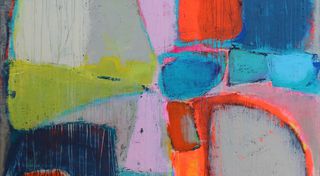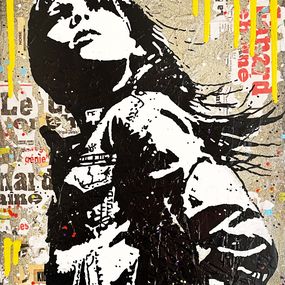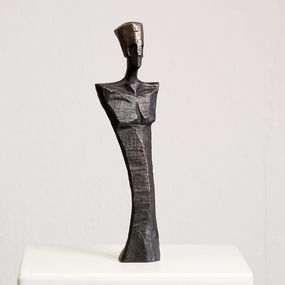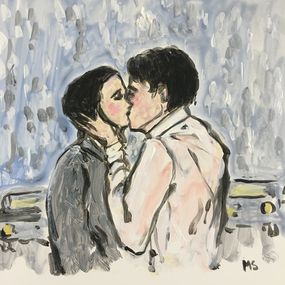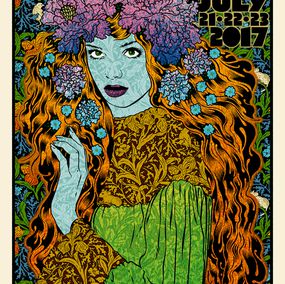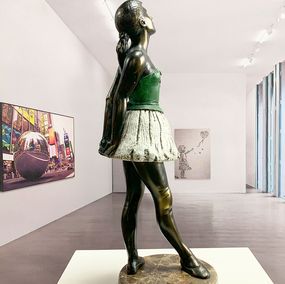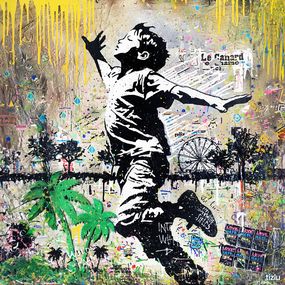
Portrait Drawing for Sale
Portraiture has existed for many centuries. The Greeks produced portraits for funeral and religious rituals; they aimed to “bring back to life those who have passed away." In the Roman era, portraits were often reserved for the ruling figures of society; for example, a warrior would have his portrait painted to illustrate his bravery during a battle. In Europe, it is only during the late Middle Ages and Renaissance that Italian and Flemish painters started to practice the art of portraiture.
In the 14th and 15th centuries, painters created works commissioned by wealthy patrons. Painters sketched out preliminary freehand drawings, which were often then approved by the patron, before beginning to work on their oil paint or, later, watercolor. Facial features were sometimes improved to the detriment of realism, although some painters were known for their ability to reproduce their models' expressions. Some artists worked in great detail while others focussed more heavily on trying to capture the real personality of their model.
For much of its history, portrait not only told a story but it also conveyed a message of power, promoting a well-controlled image to the wider population and establishing the sitter's authority through its circulation. For example, Florentine elites would use paintings and drawings as a mean of controlling their image and establishing their authority. Portraits were a way for someone to live on long after their death. Today we find the faces of aristocracies and the European bourgeoisie in many museums, immortalized by artists such as Leonardo da Vinci or Rembrandt.
The results obtained through drawing depended largely on the tools and materials used. Red chalk was very popular (especially at the beginning of the 16th century) to represent the facial features and the warmth of the skin, while charcoal produced harder lines and pastel created a softer, colorful touch. Artists adapted their technique depending on the subject and the emotion they wanted to convey. The commercialisation of pencils in the nineteenth century made it a popular medium for artists and amateurs alike. Pencil art became more popular and the tool was often used for sketching portraits.
One thing is certain; capturing facial expressions is a demanding art form and the art of portraiture requires a lot of practice. Drawing a face down to its finest details may take hours to obtain the desired result: a protruding jaw, the shape of a skull, thick brows, smiling eyes, dilated pupils… Even more difficult, are children's portraits? It can be difficult to get them to stay still for long. The artist has to be skilled enough to immortalise these men, women and children full of life.
Gradually, sketched portraits became less and less realistic but increasingly daring and experimental in terms of colour. On Artsper, discover drawings by Jean Cocteau, Julien Calot, Alice de Miramon, Philippe Pasqua, Sabine Danzé, Bahareh Navabi and Stéphanie Stindel.
Save your search and find it in your favorites
Save your search to find it quickly
Saved search
Your search is accessible from the favorites tab > My favorite searches
Unsaved search
A problem occurred
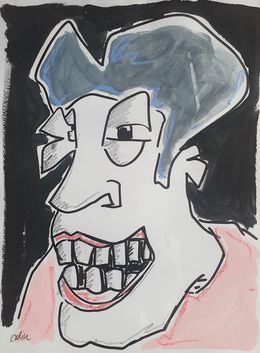

Carl Albert Angst
Fine Art Drawings - 18 x 17 x 0.3 cm Fine Art Drawings - 7.1 x 6.7 x 0.1 inch
€442
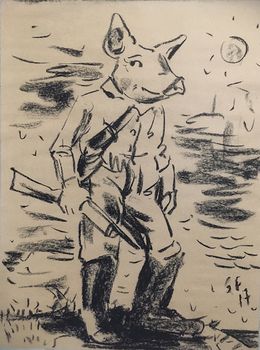
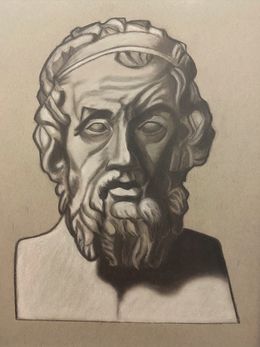




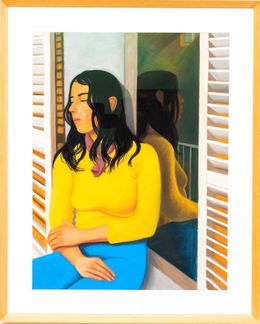
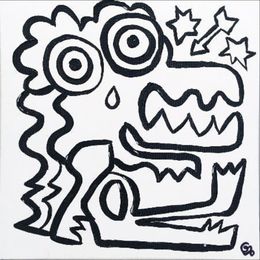
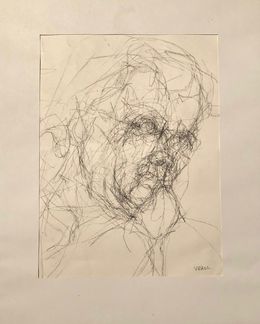





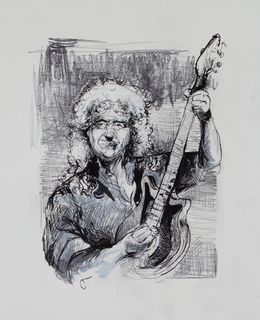
Caroline St-Pierre
Fine Art Drawings - 25.4 x 20.3 x 2.5 cm Fine Art Drawings - 10 x 8 x 1 inch
€288
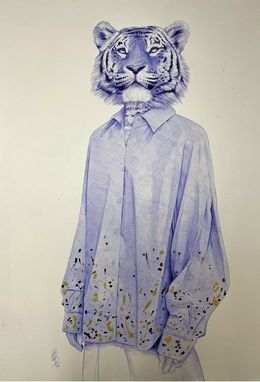

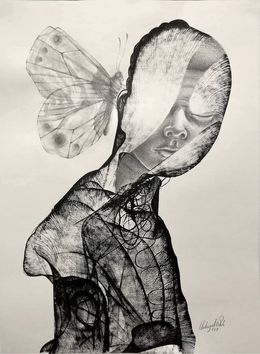
Chahrazed Fekih
Fine Art Drawings - 68 x 50 x 0.2 cm Fine Art Drawings - 26.8 x 19.7 x 0.1 inch
€1,900
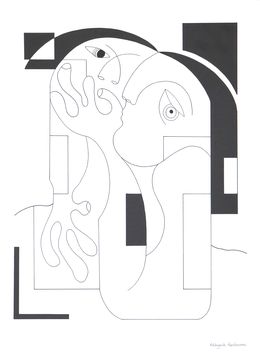
Hildegarde Handsaeme
Fine Art Drawings - 76 x 55 x 1 cm Fine Art Drawings - 29.9 x 21.7 x 0.4 inch
€520

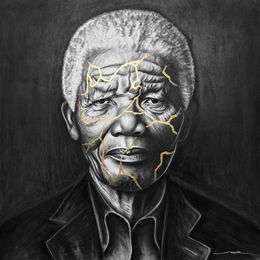

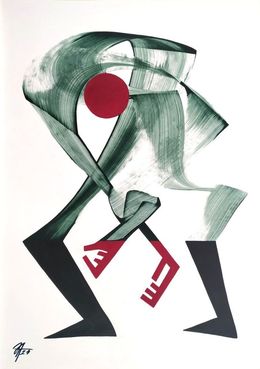
Tatiana Nega
Fine Art Drawings - 70 x 50 x 0.2 cm Fine Art Drawings - 27.6 x 19.7 x 0.1 inch
€1,100 €990
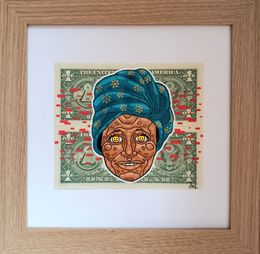

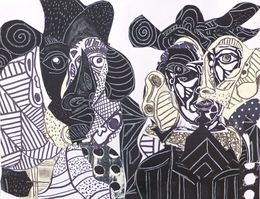
Pascal Marlin
Fine Art Drawings - 50 x 65 x 0.1 cm Fine Art Drawings - 19.7 x 25.6 x 0 inch
€700 €490

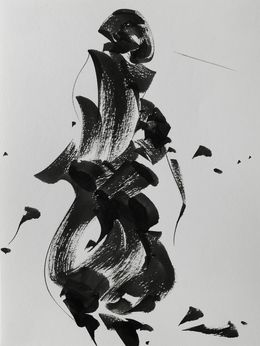

Nina Tsorieva
Fine Art Drawings - 59 x 42 x 0.5 cm Fine Art Drawings - 23.2 x 16.5 x 0.2 inch
€450 €405

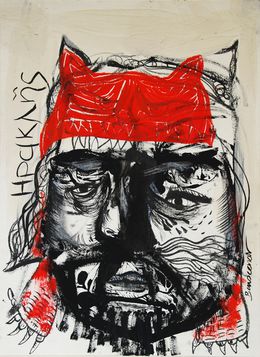
Jérôme Bouscarat
Fine Art Drawings - 40 x 30 x 0.5 cm Fine Art Drawings - 15.7 x 11.8 x 0.2 inch
€432


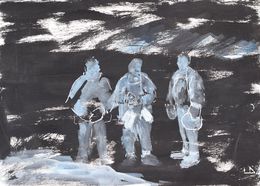
Jessica Houston
Fine Art Drawings - 25.4 x 35.6 x 2.5 cm Fine Art Drawings - 10 x 14 x 1 inch
€1,400

FMZ Fred Morgan
Fine Art Drawings - 114 x 52 x 1 cm Fine Art Drawings - 44.9 x 20.5 x 0.4 inch
€1,180


Paul César Helleu
Fine Art Drawings - 40 x 50 x 2 cm Fine Art Drawings - 15.7 x 19.7 x 0.8 inch
€9,500


La Fabrique du Sourire
Fine Art Drawings - 101 x 69 x 1 cm Fine Art Drawings - 39.8 x 27.2 x 0.4 inch
€600
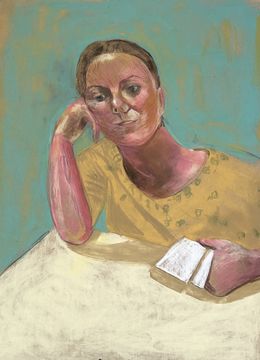
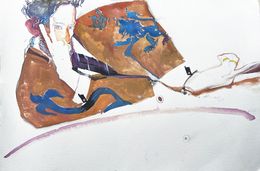
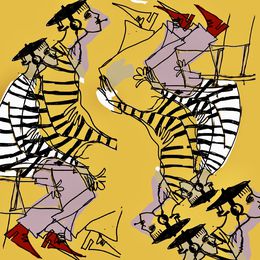

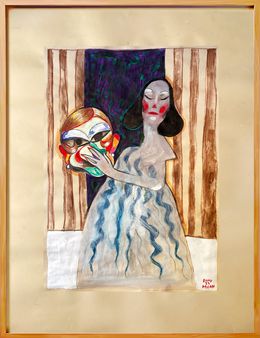
Sergey Bondarev
Fine Art Drawings - 100 x 75 x 0.2 cm Fine Art Drawings - 39.4 x 29.5 x 0.1 inch
€3,900
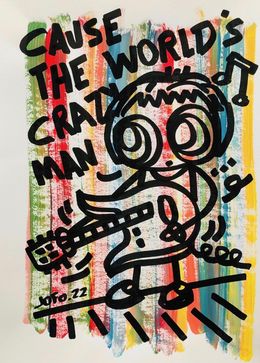


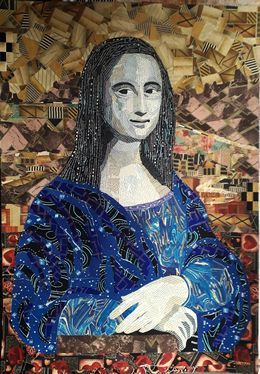
Paulo Lionetti
Fine Art Drawings - 100 x 70 x 1.5 cm Fine Art Drawings - 39.4 x 27.6 x 0.6 inch
€1,400

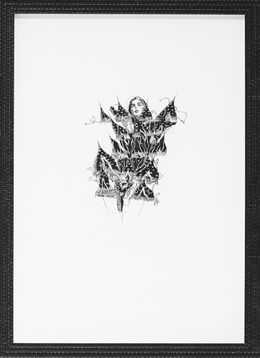
![Fine Art Drawings, Mrs Ka. [?] v1.3, LosOtros Mj Tom](https://media.artsper.com/artwork/164794_1_grid.jpg)
LosOtros Mj Tom
Fine Art Drawings - 200 x 100 x 1 cm Fine Art Drawings - 78.7 x 39.4 x 0.4 inch
€2,600
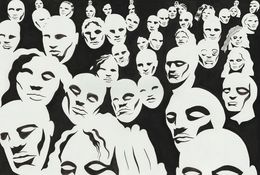
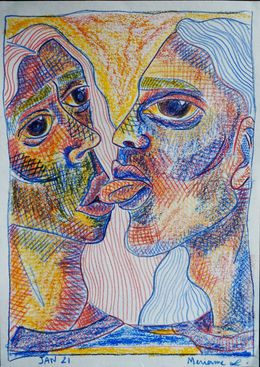


Fabienne Bonneau (Fablues)
Fine Art Drawings - 16.5 x 16 x 0.3 cm Fine Art Drawings - 6.5 x 6.3 x 0.1 inch
€125
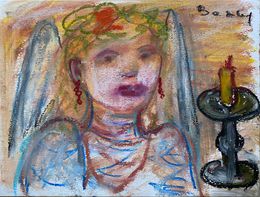
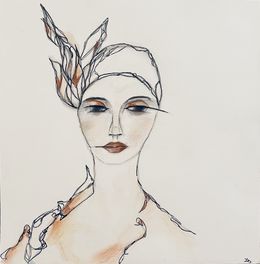


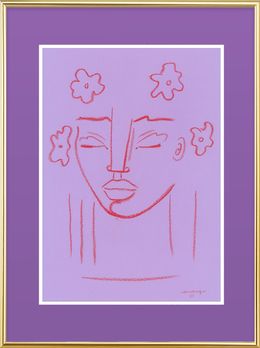
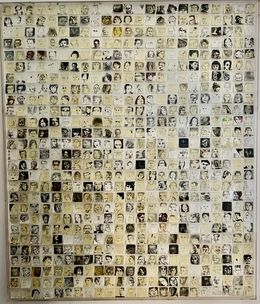
Corine Borgnet
Fine Art Drawings - 240 x 210 x 10 cm Fine Art Drawings - 94.5 x 82.7 x 3.9 inch
€12,000
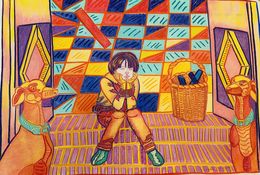
Agathe Lemaire Thalazac
Fine Art Drawings - 70 x 120 x 1 cm Fine Art Drawings - 27.6 x 47.2 x 0.4 inch
€5,000

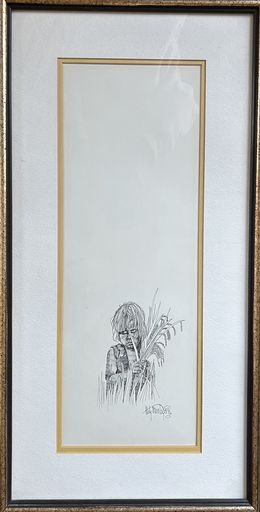


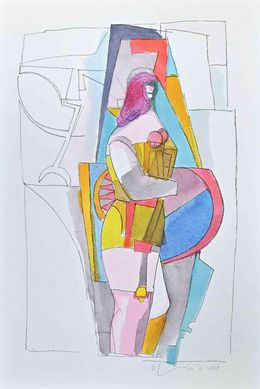

Antoniucci Volti
Fine Art Drawings - 75 x 53 x 1 cm Fine Art Drawings - 29.5 x 20.9 x 0.4 inch
€1,800
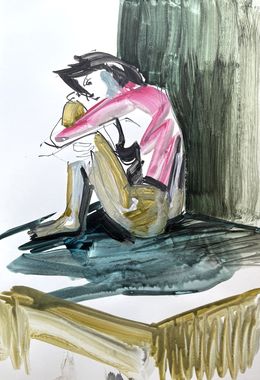
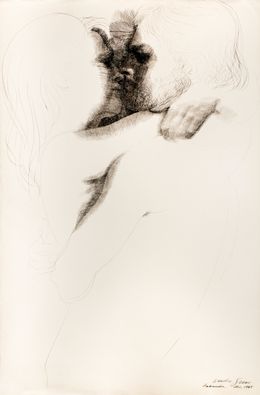

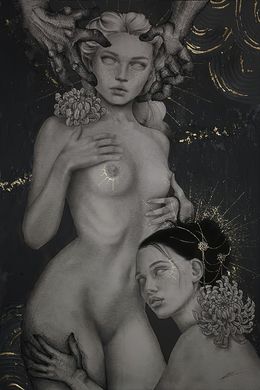
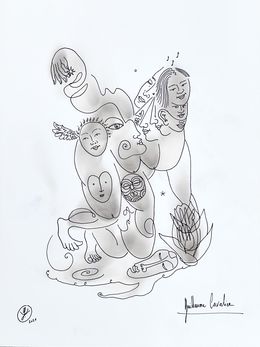
Guillaume Cavalier
Fine Art Drawings - 31 x 23 x 0.1 cm Fine Art Drawings - 12.2 x 9.1 x 0 inch
€995


Karl-Karol Chrobok
Fine Art Drawings - 80 x 60 x 0.3 cm Fine Art Drawings - 31.5 x 23.6 x 0.1 inch
€800
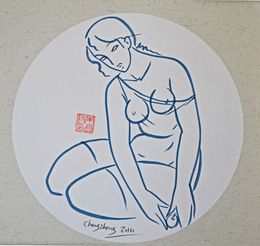

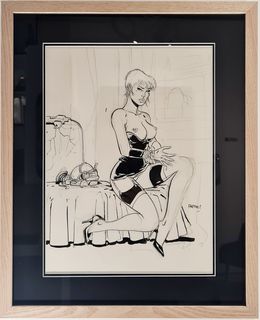


Ayako David Kawauchi
Fine Art Drawings - 30 x 30 x 1.5 cm Fine Art Drawings - 11.8 x 11.8 x 0.6 inch
€900

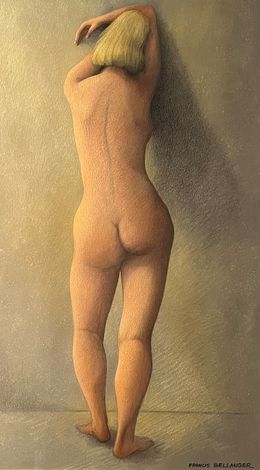
Francis Bellanger
Fine Art Drawings - 62 x 39 x 0.2 cm Fine Art Drawings - 24.4 x 15.4 x 0.1 inch
€1,700


Jose Luis De la Barra Bellido
Fine Art Drawings - 40.6 x 30.5 x 2.5 cm Fine Art Drawings - 16 x 12 x 1 inch
€269
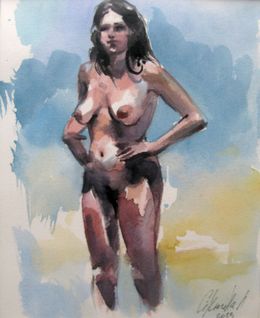
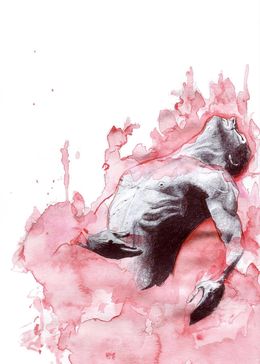
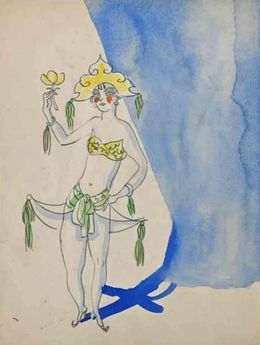
Maurice Van Moppes
Fine Art Drawings - 26.5 x 18.5 x 0.5 cm Fine Art Drawings - 10.4 x 7.3 x 0.2 inch
€300

Jean-Luc Moerman
Fine Art Drawings - 136 x 179 x 3 cm Fine Art Drawings - 53.5 x 70.5 x 1.2 inch
€14,900
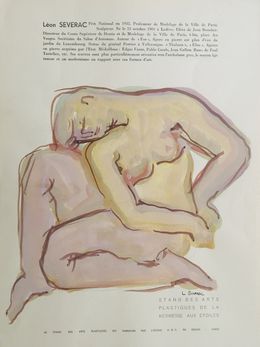
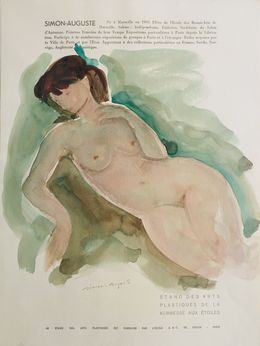
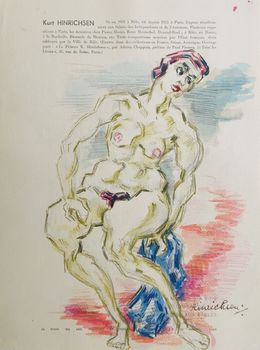
Discover the styles & movements
Discover the selection of our experts
To draw a realistic portrait, start with a good reference photo, pay attention to proportions, use shading to create depth, and focus on capturing the subject's unique features. Practice regularly and don't be afraid to make mistakes.
When choosing materials for portrait drawing, consider the surface texture, color, and weight of the paper, as well as the type and quality of the pencils or charcoal. Opt for high-quality materials that allow for precision and detail, and experiment with different combinations to find what works best for your style and technique.
When drawing a portrait, it's important to avoid common mistakes such as not paying attention to proportions, neglecting to capture the subject's unique features, and using too much or too little shading. Additionally, it's important to take breaks and step back to assess the overall composition.
